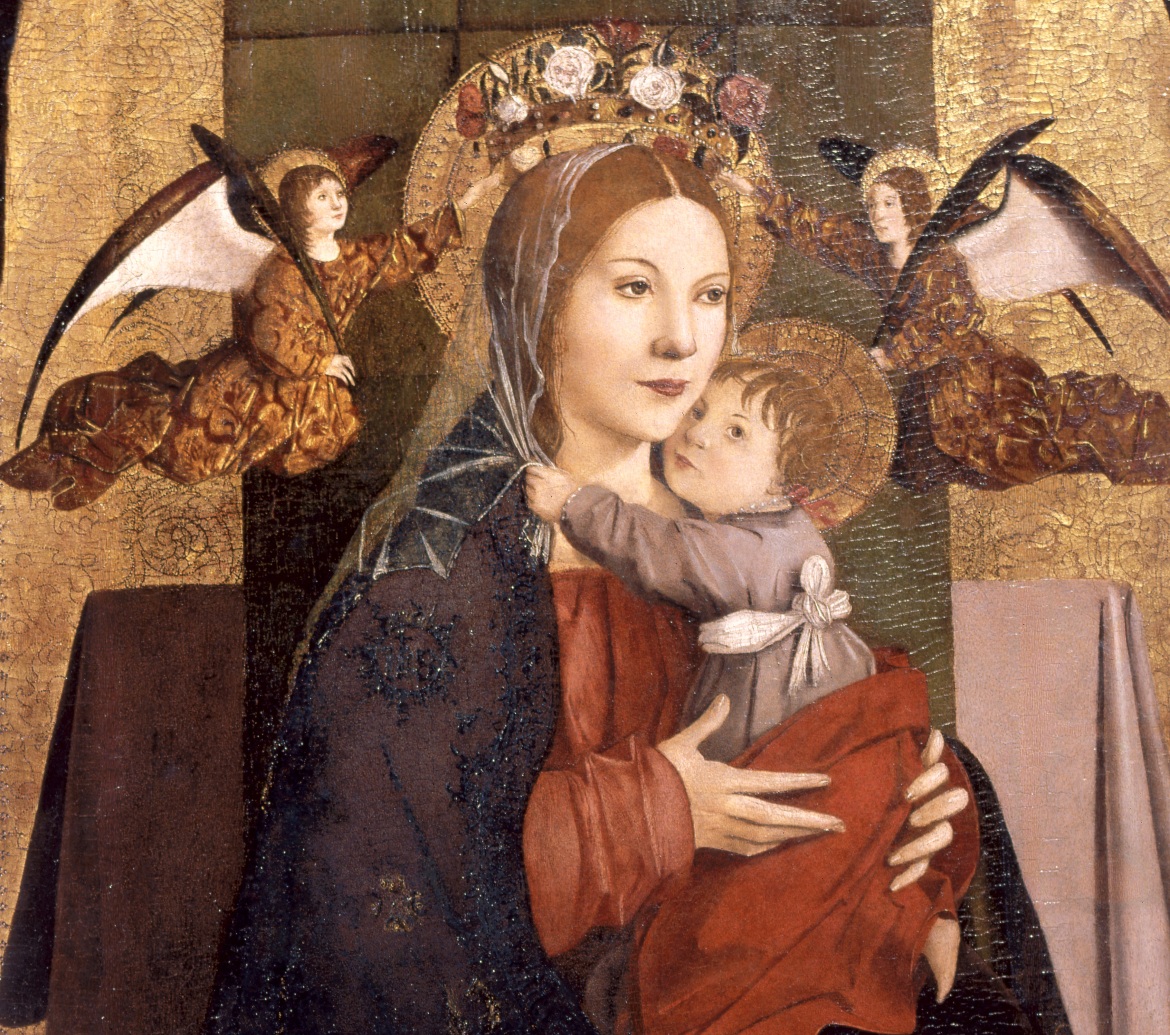Twenty-fourth Canto
Beatrice kindly asks the blessed to answer Dante's questions*. Those joyful souls joined in circles, like comets, and they all were spinning at different speeds (like clockwork gears), so that the poet could understand their degree of beatitude. A blessed came out of the most beautiful wheel, and he was the brightest of all, spinning around Beatrice three times, singing an unworldly and indescribable song. It was Saint Peter (the man our Lord left the keys to) who had responded to Beatrice's plea. Beatrice invites him to interrogate with Dante about theology. He has arrived in Paradise thanks to his virtues (charity, hope and faith), so Peter should test them. Saint Peter calls Dante Good Christian and asks him what faith is. Dante replies that, as Saint Paul (the other apostle who had converted Rome) had said, faith is the substance of the expected things, and the speculation about the invisible things. Saint Peter asks him why Paul had defined faith as substance and speculation. Dante says that the theological truths are so unknown to the mortals, that people accept to believe in salvation without tangible proof, so this hope is a substance; and this belief makes men speculate through logic, so it has the aspect of argumentation.
Saint Peter says there would be no need of sophism, if everyone knew doctrine as well as Dante does. Peter asks Dante whether he has faith**. Dante replies that he has a strong faith that he has acquired thanks to the Holy Spirit, which is the syllogism described in the Old and in New Testament, much firmer than any other explanation. He considers the Holy Scriptures God's revealed word thanks to the miracles that defy the natural law***. Peter asks why he believes such works actually took place. Dante replies that so many people converted to Christianity believing without needing any proof (John 20:29). This is the greatest miracle ever: the other miracles are not even one hundredth of this prodigy. Saint Peter had sowed the good plant through evangelizing, but now that good vine has turned into a prune. Having said that, all the blessed started singing “Te Deum Laudamus”. Peter approves all of Dante's reasoning and asks him eventually to declare what his faith consists in and on what it relies. Dante declares his creed: “I believe in a God, solely and eternal that moves all of Heaven, and is immobile, with love and desire; and I have not only physical and metaphysical evidence, but the truth is given to me by Moses, the prophets, the Psalms, the Gospels, and the Apostles; and I believe in three eternal persons, and in a essence which is both One and Triune, so that I and He are merged.” Then Dante likens his own faith to a vivid flame glowing like a star. Saint Peter manifests his approval by spinning three times around him.
*Beatrice calls the assembly of the blessed “assembly chosen to join the Great Supper of the Blessed Lamb that feeds you all, so that you always yearn for more”. So she likens that beautiful spectacle to a supper and she begs to invite Dante to their table to satisfy his thirst for knowledge, since they drink from the Godly Source.
** Peter likens faith to a coin of good weight and good metal. So he asks whether Dante has any in his bag.
***In verse 122 Dante uses a metaphor to say that the natural law cannot replicate the miracles (that the nature doesn't heat iron nor beats the anvil). In verse 126 Dante refers to the fact that Peter rushed to the sepulcher to meet Christ risen, surpassing younger feet (Saint John's feet).


